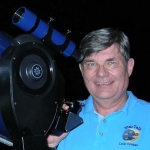Is it safe to assume,,,?
Is it safe to assume,,,?
Hey y'all, new to this educating forum.. I was disagnosed with severe OSA a couple of years ago, hated the machine (CPAP) and opted to go the surgery route. Improvement was significant, but not a complete cure.. Now, two years later, I feel like I'm sliding back into mild conditions and it's time to unpack my CPAP from its storage..
My question: pre-surgery my CPAP was tuned (during a sleep studay) to an optimal pressure of 7. Now that surgery had removed significant obstructive tissue out and apnea had improved from severe to mild, would it be logically for me to assume that the optimal pressure for me would be lower than the original 7? Or can it be the same despite the surgery and improvement? Or even even hight number?? And if lower - how much lower: 6? 5? 4? (4 is the lowest my machine will output...)
Thanks for any insites..
PS: Obviously doing another sleep study to twink that optimal pressure is the easiest/accurate way, but not the cheapest so I'm trying to see what other options I have..
My question: pre-surgery my CPAP was tuned (during a sleep studay) to an optimal pressure of 7. Now that surgery had removed significant obstructive tissue out and apnea had improved from severe to mild, would it be logically for me to assume that the optimal pressure for me would be lower than the original 7? Or can it be the same despite the surgery and improvement? Or even even hight number?? And if lower - how much lower: 6? 5? 4? (4 is the lowest my machine will output...)
Thanks for any insites..
PS: Obviously doing another sleep study to twink that optimal pressure is the easiest/accurate way, but not the cheapest so I'm trying to see what other options I have..
Re: Is it safe to assume,,,?
Which machine do you have?
Can you please add your equipment to your profile? Best thing would be to use the software (hoping your machine is a full data machine) so you can see which pressure works best. We really have no way of giving anything other than a guess.
Can you please add your equipment to your profile? Best thing would be to use the software (hoping your machine is a full data machine) so you can see which pressure works best. We really have no way of giving anything other than a guess.
_________________
| Machine: AirCurve™ 10 VAuto BiLevel Machine with HumidAir™ Heated Humidifier |
| Additional Comments: Mask Bleep Eclipse https://bleepsleep.com/the-eclipse/ |
I may have to RISE but I refuse to SHINE.
Re: Is it safe to assume,,,?
No, you can't make that assumption; it could go either way. In any case, if you still need Cpap, 7cm is already a pretty low pressure, and I'm not sure you'd want to go any lower. At 7cm, the pressure is still sufficient to wash CO2 out of the exhaust port; much lower and, depending on the mask, it may not do a good job.
Re: Is it safe to assume,,,?
NO!Is it safe to assume,,,?
The pressure may need to go lower, higher, or stay the same. We need to know what machine you have so we can help you dial this in. You will have to experiment with different pressures to see what works, and you need a machine with data to do that.
Brenda
_________________
| Humidifier: S9™ Series H5i™ Heated Humidifier with Climate Control |
| Additional Comments: Love my papillow, Aussie heated hose and PAD-A-CHEEKS! Also use Optilife, UMFF(with PADACHEEK gasket), and Headrest masks Pressure; 10.5 |
- turbosnore
- Posts: 293
- Joined: Wed Nov 05, 2008 7:00 am
- Location: Nokia (town), Finland
Re: Is it safe to assume,,,?
A high AHI has tendency to need higher pressure, but that's just statistical and I believe the distribution is wide.
The AHI sensitivity to pressure can be very different for different individuals.
Someone can have AHI 60, and 7 cmH2O is good, whereas someone else could have AHI 16 and
15 cmH2O may not be enough.
The AHI sensitivity to pressure can be very different for different individuals.
Someone can have AHI 60, and 7 cmH2O is good, whereas someone else could have AHI 16 and
15 cmH2O may not be enough.
_________________
| Mask: AirFit™ F10 Full Face Mask with Headgear |
| Additional Comments: Not sure about the gear yet, SW used is SleepyHead |
De-bugging is for sissies, real men do de-monstrations.
- BlackSpinner
- Posts: 9742
- Joined: Sat Apr 25, 2009 5:44 pm
- Location: Edmonton Alberta
- Contact:
Re: Is it safe to assume,,,?
There is no relationship between AHI and the pressure required. Mine was very severe with O2 levels dipping to 56%. When I used 7cm it reduced it my AHI down to 7- 10, 9 cm reduces it to under 5.turbosnore wrote:A high AHI has tendency to need higher pressure, but that's just statistical and I believe the distribution is wide.
The AHI sensitivity to pressure can be very different for different individuals.
Someone can have AHI 60, and 7 cmH2O is good, whereas someone else could have AHI 16 and
15 cmH2O may not be enough.
_________________
| Machine: PR System One REMStar 60 Series Auto CPAP Machine |
| Additional Comments: Quatro mask for colds & flus S8 elite for back up |
71. The lame can ride on horseback, the one-handed drive cattle. The deaf, fight and be useful. To be blind is better than to be burnt on the pyre. No one gets good from a corpse. The Havamal
Re: Is it safe to assume,,,?
Its never safe to assume...you only make an ass out of U and me.
* * *
* * *
_________________
| Machine: ResMed AirSense™ 10 AutoSet™ CPAP Machine with HumidAir™ Heated Humidifier |
| Mask: AirFit™ P10 Nasal Pillow CPAP Mask with Headgear |
Started cpap in 2010.. still at it with great results.
Re: Is it safe to assume,,,?
I have never seen anything showing a correlation between AHI and the required pressure. If you have, please share.turbosnore wrote:A high AHI has tendency to need higher pressure, but that's just statistical and I believe the distribution is wide.
The OSA patient died quietly in his sleep.
Unlike his passengers who died screaming as the car went over the cliff...
Unlike his passengers who died screaming as the car went over the cliff...
- chunkyfrog
- Posts: 34545
- Joined: Mon Jul 12, 2010 5:10 pm
- Location: Nowhere special--this year in particular.
Re: Is it safe to assume,,,?
Me neither; but there appears to sometimes be a correlation between position and pressure,
especially if the apnea is affected by sleeping position.
This is why anyone with positional apnea may need to consider an automatic machine.
Either that or some apparatus to keep them off their back.
(But NOT INSTEAD of XPAP)
especially if the apnea is affected by sleeping position.
This is why anyone with positional apnea may need to consider an automatic machine.
Either that or some apparatus to keep them off their back.
(But NOT INSTEAD of XPAP)
_________________
| Mask: AirFit™ P10 For Her Nasal Pillow CPAP Mask with Headgear |
| Additional Comments: Airsense 10 Autoset for Her |
Re: Is it safe to assume,,,?
Thank you ALL for replying so quickly and insightfully
Re: Is it safe to assume,,,?
The F & P SleepStyle 234 only offers hours of use..compliance data. Nothing else to gauge therapy needs.
One has to have a 240 series machine to use the Performance Maximizer software which includes efficacy data needed to monitor treatment needs or effectiveness.
One has to have a 240 series machine to use the Performance Maximizer software which includes efficacy data needed to monitor treatment needs or effectiveness.
_________________
| Machine: AirCurve™ 10 VAuto BiLevel Machine with HumidAir™ Heated Humidifier |
| Additional Comments: Mask Bleep Eclipse https://bleepsleep.com/the-eclipse/ |
I may have to RISE but I refuse to SHINE.
Re: Is it safe to assume,,,?
First - Thank you ALL for replying so quickly and insightfully
Second - I believe my CPAP machine is a very basic one: the F&P "SleepStyle" HS234, which to the best of my knowledge has no AHI/data recording or any automatic pressure adjustment capabilities
Third - @LinkC: I did find on the web one study that shows correlation between the severity of the OSA and the prssure number: http://meeting.chestpubs.org/cgi/conten ... /4/p149002
Now back to my question: When I was diagnosed with severe OSA two years ago I was given a CPAP pressure of 7cm in the lab. True, this number seems "low" for an apnea that is Severe, but that's what I was given.. Now, after surgery [in which a deviated septum was corrected and significant tissue had been removed (enlarged tonsils + uvula)] - it's only "logical that less pressure should be required to keep that airway opened. Yet I'm aware that logic and reality don't always go hand-in-hand...
Any thoughts on that?
PS: my biggest motivation in lowering that CPAP pressure is tp minimize those noisy mask leaks and squeaks that keep waking me up (despite ear plugs + Ambien CR), a reason that had driven me to undergo that surgery in the first place...
Second - I believe my CPAP machine is a very basic one: the F&P "SleepStyle" HS234, which to the best of my knowledge has no AHI/data recording or any automatic pressure adjustment capabilities
Third - @LinkC: I did find on the web one study that shows correlation between the severity of the OSA and the prssure number: http://meeting.chestpubs.org/cgi/conten ... /4/p149002
Now back to my question: When I was diagnosed with severe OSA two years ago I was given a CPAP pressure of 7cm in the lab. True, this number seems "low" for an apnea that is Severe, but that's what I was given.. Now, after surgery [in which a deviated septum was corrected and significant tissue had been removed (enlarged tonsils + uvula)] - it's only "logical that less pressure should be required to keep that airway opened. Yet I'm aware that logic and reality don't always go hand-in-hand...
Any thoughts on that?
PS: my biggest motivation in lowering that CPAP pressure is tp minimize those noisy mask leaks and squeaks that keep waking me up (despite ear plugs + Ambien CR), a reason that had driven me to undergo that surgery in the first place...
Last edited by chico74 on Sun Nov 13, 2011 4:05 pm, edited 1 time in total.
Re: Is it safe to assume,,,?
Perhaps if you included your mask in your equipment someone who uses it can offer some hints with the leaks and such.
I understand that logic would suggest that if an obstruction was removed or lessened then pressure needs may also be lessened. The is no definitive correlation between severity of OSA and pressure needs. Some one with 100 AHI might easily get by with a pressure of 6cm and a person with an AHI of 20 might need 16 cm of pressure. It all comes down to the individual airway architecture and how easily it collapses and how much pressure that person's soft tissues need to hold it open.
Without any data at all to monitor pressure effectiveness no one can tell you if lower pressure will be effective for you or not. The other alternative would be a new titration sleep study. I would buy a full data machine if it were me.
Another alternative might be to rent a machine that offers full data or see if your DME will let you try one for a week.
Your surgery removed some obstacles to your airway. We don't know how much the obstacles themselves impacted pressure needs. If your airway still needs 7 cm of pressure to hold it open the removal of the obstacles may not make any difference in pressure needs. It all depends on airway patency (past the nasal airway and past the tongue) and not necessarily the level of obstruction.
I won't advise lowering the pressure without having more information from therapy data reports. Heck, we don't really know that the 7 cm was spot on. Especially if your mask was leaking all the time.
I understand that logic would suggest that if an obstruction was removed or lessened then pressure needs may also be lessened. The is no definitive correlation between severity of OSA and pressure needs. Some one with 100 AHI might easily get by with a pressure of 6cm and a person with an AHI of 20 might need 16 cm of pressure. It all comes down to the individual airway architecture and how easily it collapses and how much pressure that person's soft tissues need to hold it open.
Without any data at all to monitor pressure effectiveness no one can tell you if lower pressure will be effective for you or not. The other alternative would be a new titration sleep study. I would buy a full data machine if it were me.
Another alternative might be to rent a machine that offers full data or see if your DME will let you try one for a week.
Your surgery removed some obstacles to your airway. We don't know how much the obstacles themselves impacted pressure needs. If your airway still needs 7 cm of pressure to hold it open the removal of the obstacles may not make any difference in pressure needs. It all depends on airway patency (past the nasal airway and past the tongue) and not necessarily the level of obstruction.
I won't advise lowering the pressure without having more information from therapy data reports. Heck, we don't really know that the 7 cm was spot on. Especially if your mask was leaking all the time.
_________________
| Machine: AirCurve™ 10 VAuto BiLevel Machine with HumidAir™ Heated Humidifier |
| Additional Comments: Mask Bleep Eclipse https://bleepsleep.com/the-eclipse/ |
I may have to RISE but I refuse to SHINE.
Re: Is it safe to assume,,,?
There is a minimum and 7 is pretty close to it. You can minimize noise from the mask by making a liner out of an old washed shirt. Cut about 1/2" extra around the part of the mask that touches your face. Try different masks. Probably the best idea is to get another sleep study. Your machine is obsolete anyway.chico74 wrote: Now back to my question: When I was diagnosed with severe OSA two years ago I was given a CPAP pressure of 7cm in the lab. True, this number seems "low" for an apnea that is Severe, but that's what I was given.. Now, after surgery [in which a diviated septum was corrected and significant tissue had been removed (enlarged tonsils + uvula)] - it's only "logical that less pressure should be required to keep that airway opened. Yet I'm aware that logic and reality don't always go hand-in-hand...
Any thoughts on that?
PS: my biggest motivation in lowering that CPAP pressure is tp minimize those noisy mask leaks and squeaks that keep waking me up (despite ear plugs + Ambien CR), a reason that had driven me to undergo that surgery in the first place...
_________________
| Mask: FlexiFit HC431 Full Face CPAP Mask with Headgear |
| Humidifier: S9™ Series H5i™ Heated Humidifier with Climate Control |
I never would have made it without this forum.
- leonardlake
- Posts: 73
- Joined: Thu Feb 15, 2007 12:47 pm
- Location: Colorado
Re: Is it safe to assume,,,?
AHI vs Pressure is unique to each individual. I have used Encore Pro Analyzer to determine my pressure sweet spot. See my graph in the following topic:
I have to make sure I don't set my pressure too high or too low to get the minimum AHI. Too low and Hypopneas increase; too high and central apneas increase.
viewtopic.php?f=1&t=51755&p=489368#p489368
Leonard
I have to make sure I don't set my pressure too high or too low to get the minimum AHI. Too low and Hypopneas increase; too high and central apneas increase.
viewtopic.php?f=1&t=51755&p=489368#p489368
Leonard
_________________
| Humidifier: S9™ Series H5i™ Heated Humidifier with Climate Control |
| Additional Comments: Using ResScan V3.12 software to keep a tight pressure range around 9 cm H20 to minimize hyponeas and obstructive and central apneas |


















